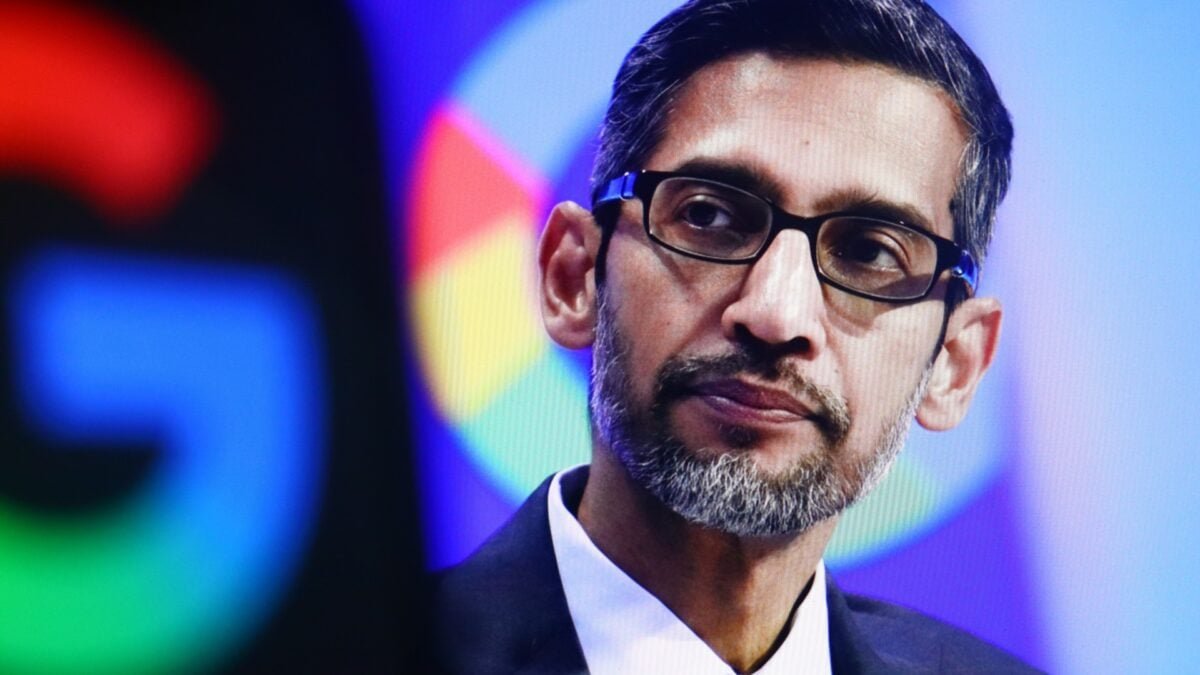
Concerns are growing about an AI bubble.
A growing list of experts, from the Bank of England to investor Michael Burry of ‘The Big Short’ fame, have indicated belief in the overvaluation of AI stocks to varying degrees.
Over the past few months, the AI hype has been joined by technology executives from leading companies with record valuations. Sam Altman said in August that he thinks investors are currently “over-excited” about AI. Just last month, Bezos called AI an “industrial bubble.”
The latest name to be added to that list is that of Google CEO Sundar Pichai.
“Given the potential of this technology, the excitement is very rational. It’s also true, as we go through these investment cycles, there are moments when we collectively overshoot as an industry,” Pichai told the BBC in an interview published Tuesday. “So, I think it is rational and there are also elements of irrationality in such moments.”
The Google chief essentially compared the current AI trade to the dot-com bubble, which wiped out about $5 trillion in market value when it burst.
Pichai said, “We can look back on the Internet right now, there was obviously a lot of investment, but none of us would question whether the Internet was profound or whether it had much of an impact, that it fundamentally changed the way we work digitally as a society.” “I expect AI to be the same.”
AI enthusiasts are more worried about the bubble bursting than the possibility of it bursting.
These concerns were raised by some after Meta downsized its AI department last month after a massive hiring spree over the summer. And then last week, when SoftBank and Peter Thiel’s hedge fund Thiel Macro both reportedly sold their stakes in AI darling Nvidia, which is due to deliver a highly anticipated earnings report on Wednesday afternoon.
Asked what would happen if this hypothetical AI bubble burst, Pichai said that “no company will be left untouched.” This includes Google itself, even though Pichai said he thinks they’re “in a better position.”
Google is one of the many companies that have made big bucks on AI hype. Google-parent Alphabet became the fourth company to surpass the $3 trillion market cap in September. Meanwhile, it has continued to spend billions of dollars expanding its AI offerings, including Gemini, the company’s top AI product.
It is not that only Google is spending such a huge amount. Tech giants across industries are spending enormous amounts of money on AI.
Pichai told the BBC that there is “over a trillion dollars invested” in the tech industry overall dedicated to building AI infrastructure, a number that is only growing exponentially and with no end in sight.
Deutsche Bank said in September that current AI spending is so large that it could propel the entire US economy right now.
Meanwhile, an August MIT report claimed that only 5% of businesses adopting AI were making real revenue gains.
Nevertheless, Pichai believes that AI is still the future of society. In the BBC interview, he had some advice to share on how to navigate this AI-integrated future that he and the rest of Silicon Valley are envisioning.
Pichai said people will have to “adapt” as he predicted that some jobs will “evolve and change” with the widespread adoption of AI. To do this, he claimed, everyone in every business must use AI in their work. But moments after this endorsement of AI-integrated work, he acknowledged that the technology is prone to errors, unlike other company products like Google Search, which are “more capable of providing accurate information.”
